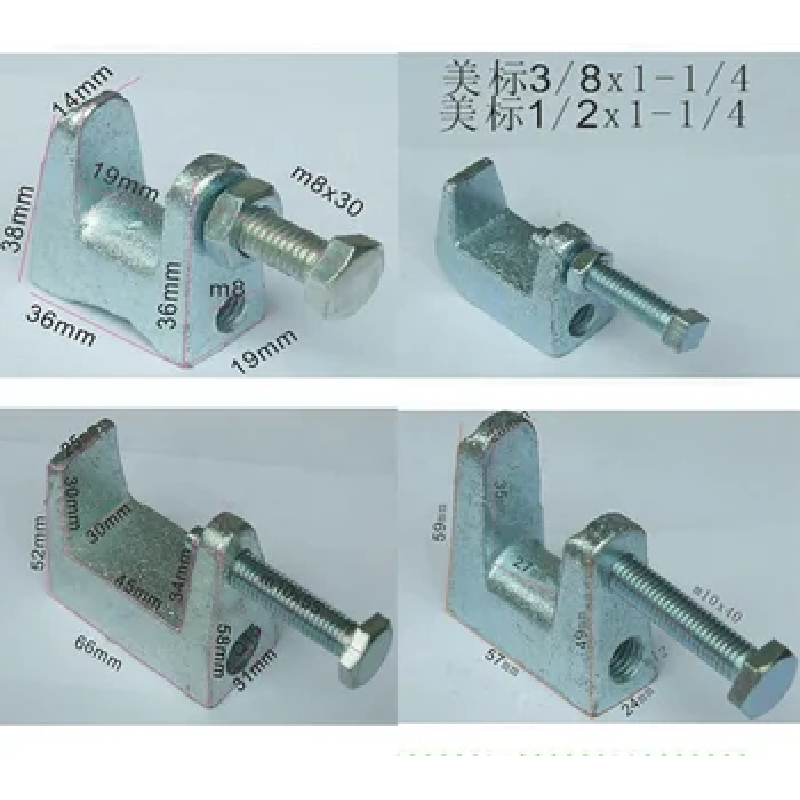Oct . 14, 2024 09:45 Back to list
Exploring Different Types of Anchor Bolts for Various Applications and Industries
Understanding the 10 Types of Anchor Bolts
Anchor bolts are essential components in construction and engineering, designed to secure structural elements to concrete foundations. They come in various types, each serving a specific purpose based on the load requirements and environmental conditions. Here, we explore the ten most common types of anchor bolts, highlighting their characteristics, applications, and advantages.
1. Cast-in-Place Anchor Bolts These bolts are embedded into the concrete slab during the pouring process. They provide excellent tension and shear resistance, making them ideal for heavy structural applications like steel buildings and bridges.
2. Post-Installed Anchor Bolts Unlike cast-in-place variants, these bolts are installed after the concrete has cured. They can be inserted into pre-drilled holes and are typically used in renovation projects or when modifications are necessary.
3. Expansion Bolts This type of anchor bolt expands when tightened, creating a strong hold inside the concrete. They are particularly effective in applications where a removable anchor might be needed, such as in temporary structures or fixtures.
4. Epoxy Anchor Bolts These bolts use a special epoxy resin to bond them to the concrete, providing high strength and durability. They excel in environments where corrosion is a concern, as they can withstand harsh chemicals and moisture.
5. Sleeve Anchor Bolts Ideal for lighter loads, sleeve anchors consist of a screw with a sleeve that expands against the concrete when the screw is tightened. They're commonly used for fixing brackets, shelves, and other light applications.
10 types of anchor bolts

6. Lag Shields Used in conjunction with lag screws, lag shields provide a secure anchor point in concrete. These are often utilized in securing wood structures to concrete foundations and are favored for their simplicity and effectiveness.
7. Wedge Anchors Wedge anchors feature a tapered end that wedges against the side of the drilled hole in concrete as it is tightened. They are suitable for heavy-duty applications, including securing machinery and steel frameworks.
8. Through Bolts Through bolts are long bolts that pass entirely through a structural element, typically secured with a nut and washer on the opposite side. They are great for situations where a strong hold is needed on both sides of the material.
9. Dowel Pins While not traditional anchor bolts, dowel pins serve a similar purpose by providing alignment and connection between concrete elements. They offer high load-bearing capacity and are often used in precast concrete applications.
10. Chemical Anchors Similar to epoxy bolts, chemical anchors involve the use of a bonding agent to secure the bolt in the concrete. They are versatile and can be used in various applications, providing high stability in different environments.
Conclusion
Each type of anchor bolt serves distinct functions, making them suitable for various applications in construction and engineering. Understanding the differences among these types can significantly impact the success of a project. Factors like load requirements, environmental conditions, and material compatibility should be considered when selecting the appropriate anchor bolt. Proper installation and adherence to safety standards are crucial to ensuring structural integrity and longevity. For anyone involved in construction or engineering, knowledge of these 10 types of anchor bolts is essential for creating secure and reliable structures.
-
The Ubiquitous Reach of DIN934 in Application Realms
NewsMay.16,2025
-
Exploring Different Bolt Types
NewsMay.16,2025
-
Cracking the Code of Sleeve Anchor Mastery
NewsMay.16,2025
-
Clamp Design Principles,Types and Innovations
NewsMay.16,2025
-
Artistry Inspired by the Humble Anchor Bolt
NewsMay.16,2025
-
A Deep Dive into Screw Types
NewsMay.16,2025


